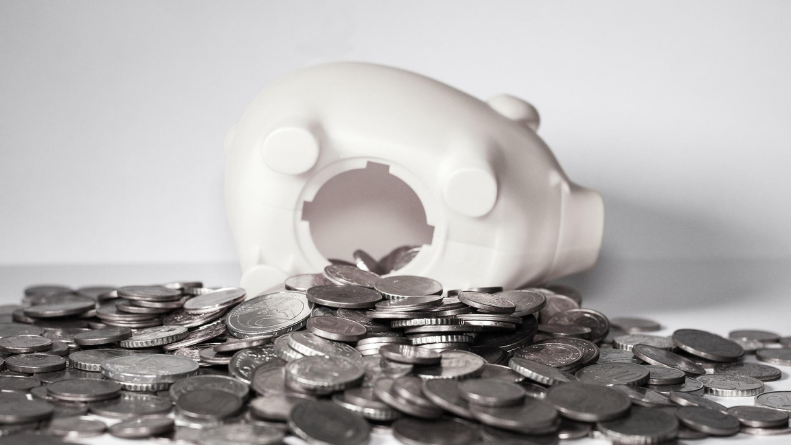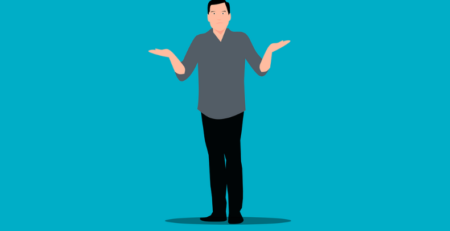Can you Afford a Mortgage?
You may be wondering if you can afford a mortgage, or perhaps how much you can afford to borrow if you are eligible. Knowing your monthly mortgage payment is critical when purchasing a home. If you want to get a mortgage, lenders will carry out affordability checks to see how much money you have saved, how much money you make, how much money you spend, and how much debt you have.
To help prevent any financial difficulties down the line, having an accurate assessment of your income and outgoings can help you see if you are able to afford the monthly mortgage repayments as well as other living expenses like utility bills, council tax, vet bills, and other financial commitments you may have.
How much can you afford to borrow?
How much you can borrow towards a property is decided by the loan-to-value ratio (LTV); it is the percentage of the property’s value that you can borrow, which is limited to 4.5 times what you are earning. To illustrate, if you have a 15% down payment and need to borrow 85 percent of the property’s value as a mortgage, your LTV will be 85 percentage points. The lower the LTV, the cheaper the monthly mortgage payments become.
It’s a good idea to save as much as possible for the down payment because this will have a significant effect on the interest rates you end up paying on the loan. The larger the deposit, the lower the rates will be. Having a larger deposit will give you a better chance at finding a good mortgage deal since you won’t need to borrow as much, and the risk of default is reduced for the lender.
Lenders typically require a minimum of 5% down payment when purchasing a home, giving you an LTV of 95%.If you can save 10% (90 percent LTV) or 20% (80 percent LTV) or even higher, you’ll have a far broader selection of mortgage deals to choose from. Under certain circumstances, lenders will change what they offer, such as when COVID-19 was discovered, a large number of mortgage lenders were forced to halt their 95 percent mortgage offers at at least 15 percent of the purchase price.
It’s possible that you won’t qualify for a mortgage if you have a lot of debt, or alternatively, the lender will only offer you a small amount. Preparation is key since your outgoings might have an impact on whether or not you qualify for a mortgage and how much you are able to borrow.
What kind of things will the lender consider?
A 4.5 loan-to-income ratio limit was established by the Financial Conduct Authority (FCA) in 2014. Thus, the maximum amount a typical homeowner may borrow as a mortgage is equal to four and a half times their yearly salary. The FCA said, “A cap on high loan-to-income mortgage lending was introduced to limit the risk of excessive household leverage, curb unsustainable credit growth, and reduce the risks of financial instability.”
To be clear, this is the maximum amount you may borrow; many mortgage applicants, especially those with lower incomes or those who want a mortgage but work zero hours, will only be eligible for significantly smaller loans.
Before choosing how much to lend an applicant, lenders were required to do an affordability assessment under the new rules implemented in 2014. The lender’s affordability assessment during a mortgage interview looks in depth at your income and outgoings, as well as your credit score rating and how much deposit you will be putting down. From this information, they will assess how much you are able to borrow.
Calculating your mortgage affordability
To begin with, your mortgage lender will perform some preliminary calculations to see how much money you can realistically borrow. With this information, you may get a ballpark number for how much money you can borrow from a lender, which is known as a “Mortgage in Principle” (MIP).

After this stage, your lender or broker will carry out an affordability assessment to determine if they can approve you for a mortgage based on your income and expenses. Income will include your salary plus any other income like investments.
To make sure you are well prepared for this process, make sure your documentation is in order, which they will need to go ahead. To prevent any delays, check that it is all up-to-date and contains the correct information like address, etc. The documentation they will need is:
Proof of address
Typically a formal letter or utility bill will suffice. Make sure that it is not more than 3 months old.
Identification
A passport of driving license will do for ID. Again, make sure it has the correct address and is up to date.
Bank statements
They will want up to about 6 months’ worth, including the most recent ones, to gauge your income and outgoings.
Pay slips
Same as above, about up to 6 months’ worth, including the most recent ones. For self-employed individuals, they will require your accounting records.
Deposit
You will need to show proof that you have the deposit stated. This will be a bank statement or proof that it is being gifted, etc.
How is mortgage affordability calculated?
The amount of money you make before taxes and any additional sources of income will be taken into consideration by your mortgage lender when doing an affordability analysis. They’ll also take a look at your spending habits and outgoings.
“Income” is not just your salary but also includes the following:
- Income from second or third jobs
- Benefits, including child maintenance
- Pension earnings
- Financial support from an ex-partner
Your outgoings will be taken into account by your mortgage provider when evaluating the amount of loan you can afford. Having a child or losing your job are two potential things that lenders will look at when deciding how much you can afford to pay on your mortgage.
Outgoings include a broad category, all of which have to be taken into account:
- Utility and telecom bills
- Any debt that you owe
- Student loans
- Childcare and child maintenance costs
- Travel expenses and fuel costs
- Vehicle costs (tax, MOT, insurance, servicing, etc.)
- Insurance policies
- Private medical or dental costs
- Regular recreational activities
What mortgage interest rate options are there?
As noted above, the larger the deposit you can put down, the better deal you will likely get. Furthermore, what interest rate deal you can get will have an effect on how much your monthly repayments will be. Interest rates have been very low for some time, but the signs are that this is set to change in the next few years as central banks and governments tackle high inflation. There are two principal kinds of mortgages: fixed-rate and variable-rate mortgages.
Fixed-rate mortgage
As the name alludes to, a fixed-rate mortgage is one in which the interest rate on your mortgage, and hence your monthly payments, is locked in for a specified period of time. For a certain amount of time, this choice ensures a cheaper and more predictable monthly cost for many people, which is especially ideal at a time of high interest rate fluctuation.
Your lender’s typical variable rate usually takes over when your fixed-rate period expires. This will most likely be at a higher rate than the fixed rate, resulting in greater monthly payments for you. At this stage, it is common for homeowners to shop around for deals on remortgaging to try and find a better deal.
Variable rate mortgage
For those who have a variable-rate mortgage, their monthly payments may rise or fall each month. This is because your lender’s regular variable rate may have increased or decreased, or the Bank of England (the UK’s central bank) has altered its base rate.
In the event that your wage changes each month, a standard variable rate mortgage may not be the ideal option because each month’s payment is not guaranteed and there’s no consistency.
Can you keep up with the mortgage repayments?
Even though your lender will assess your mortgage affordability, it’s a good idea to sit down beforehand and think about whether you can live comfortably with the financial commitments that a mortgage entails, and perhaps discuss it with others as well. Be honest with yourself and decide if you are ready for the long-term financial commitment.
Keep in mind that you’ll be responsible for more than just your monthly mortgage payment. Buying a property comes with a variety of fees and costs, including monthly utility payments and the continuing upkeep costs of owning a home. Things like a leaky roof or boiler replacement don’t come cheap.
If your monthly outgoings leave you with very little money left, you may want to rethink purchasing a home at this time until your financial situation has improved. Each month, you don’t want to find yourself in the midst of a financial crisis and feeling stressed because you have to go without something you need.
Each person’s personal circumstances will be different, but there are some questions you can ask yourself to help guide the decision-making process on whether you can afford to take out a mortgage, and these include:
- How much more in mortgage payments will you be paying compared to what you pay now in rent?
- Will you be able to keep up with paying all the bills? If you are looking to move from a small place to a large one, keep in mind that the larger the property, the more expensive the bills will likely be. Furthermore, if you share your house with others, then you likely also share the bills between you.
- Maintenance and repair costs can be quite substantial, and the older the property, the more likely you will have to fork out. Plumbing, heating, leaky roofs, boiler replacements, fencing, all cost money. Will you be able to put some money aside for these things?
- Another important thing to consider is how secure your current employment is. The same goes for self-employed people. How secure is the work you are currently getting? For example, are there indications that your job will soon be automated or that your company may be cutting back?
- Following on from the above point, have you got enough savings behind you in case of a financial crisis, like if you lost your job?
- If you are accustomed to a certain lifestyle that you will find hard to give up, you will need to consider if you are OK without it or cut back on those things you love doing. For example, do you love going abroad on expensive holidays several times a year but will have to cut back or forgo them entirely?
In sum, there are plenty of things to think about as you consider whether you can afford to take out a mortgage. Each person’s circumstances are different, so take the time to sit down and go over all your outgoings and incomings, not forgetting anything. Be realistic about your finances and don’t try to fool yourself. The last thing you want to do is move into your dream home only to discover that you are unhappy because you are still struggling to make ends meet.
ARE YOU READY TO START INVESTING?
Subscribe to our mailing list now for exclusive deals, investment guides and the latest information from the property market.







